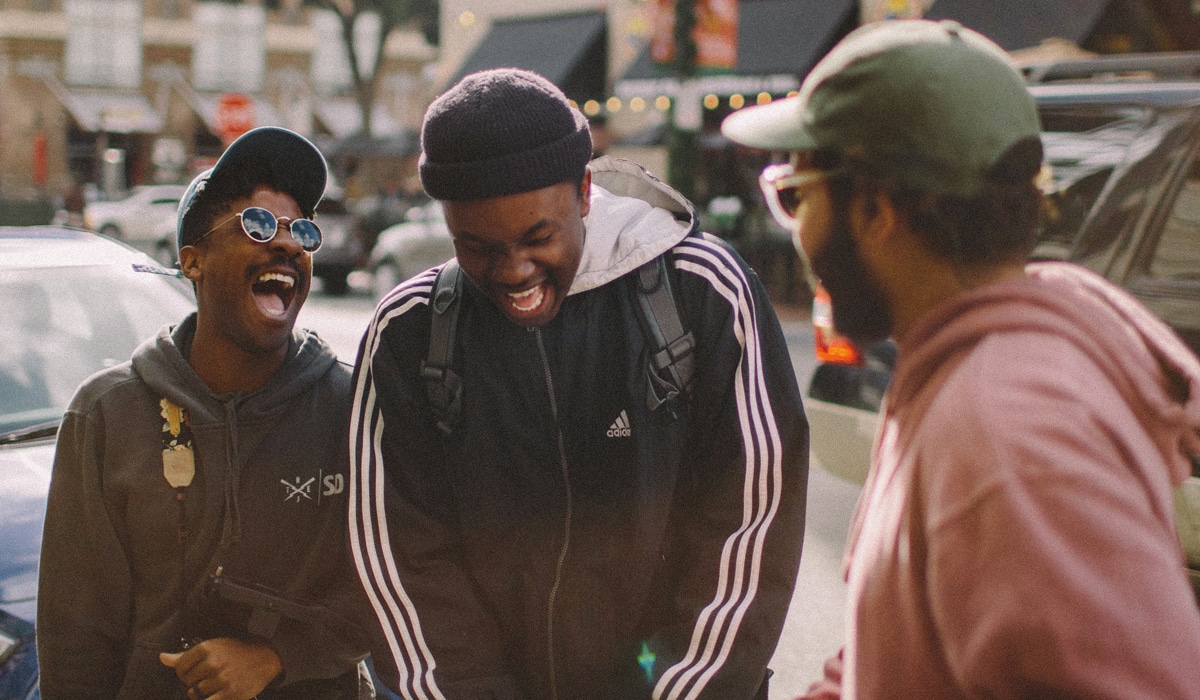Platonic friendships can turn sour just like romantic relationships. What are the signs of a toxic friendship, and what should you do about it?
It is said that in the cookie of life, friends are the chocolate chips. But what if those chocolate chips aren’t all that sweet? Or, what you thought was a chocolate chip, was actually a raisin? How do you take it out so that your whole cookie does not crumble?
There are so many things that we can’t control in life: our family, our DNA, oftentimes what happens around us. In an effort to make our lives the best they can be, we need to focus on what we can actually control in our lives, and one aspect of this is the friendships we have. There are many benefits when it comes to making friends, including better health. According to Mayo Clinic, ‘Adults with strong social connections have a reduced risk of many significant health problems, including depression, high blood pressure and an unhealthy body mass index (BMI). In fact, studies have found that older adults who have meaningful relationships and social support are likely to live longer than their peers with fewer connections.
Friends can help reduce your stress and boost your happiness, improve your self-confidence, and help you cope with negative experiences in your life. Of course, not every friendship is going to tick all of those boxes. So then the question becomes, how many boxes should you allow to be unticked before ‘breaking up’?
4 SIGNS OF A BAD FRIENDSHIP
1. It’s Not Reciprocal
A friendship is a two-way street – as well as getting, you’ve also got to give. So, if you feel like you’re the only one putting in effort, you may be in a toxic friendship. ‘In a toxic relationship, one person feels more invested. They feel they are always the one to compromise and may even feel taken advantage of by the other person: says Psycom.
2.You Can’t Be Honest With Them
You may feel like you can’t voice how you feel to the other person. Not being able to express yourself honestly means that there is a problem in a friendship. Remember, conflict isn’t necessarily always bad!
3. They Gaslight You
Gaslighting is a tool that many abusers use to manipulate others. ‘Typically, gaslighters are seeking to gain power and control over the other person, by distorting reality and forcing them to question their own judgement and intuition, explains the Newport Institute. So, if you do try to explain how you feel to your friend, and they attempt to convince you that you’re overreacting or that you’re misremembering things, this may be a sign that your friendship is toxic.
4. You Don’t Like Yourself When You’re Around Them
One of the signs of a healthy friendship is that the other person encourages you to be the best person you can be – they help boost your confidence to do amazing things. So, if your friend tries to get you to do things that are in conflict with your goals and values, this may be an unhealthy friendship. Mahzad Hojjat, professor of psychology at the University of Massachusetts Dartmouth and author of The Psychology of Friendship, explained to HuffPost, ‘If, as a result of your friendship, you find yourself engaging in behaviours that you regret later, such as being self-destructive, being mean to others or engaging in illegal or immoral activities, then it would be best to terminate this toxic friendship. If these signs are making you think of events in your own relationships, it’s time to assess whether or not you want to continue having this person in your life.
ARE YOU THE BAD FRIEND?
Can’t keep something to yourself even though your friend swore you to secrecy? Do you judge instead of support? Do you consistently not show up for plans? You may be the toxic one in your friendships. Take a look at what you contribute to your relationships and bring awareness to your actions. You may find aspects of your own personality and habits to work on.

WHAT TO DO IN A TOXIC FRIENDSHIP
Try To Salvage The Friendship
If you don’t like the idea of cutting the person out of your life, but you want things to improve, you’ve got to have an open and honest conversation about your feelings. When you confront a person, it’s tempting to use sentences that start with ‘you never’. Try to steer away from accusations and instead focus on ‘I’ statements that explain your emotions and thoughts.
If the other person jumps to gaslighting you and not taking responsibility for their actions, it’s time to walk away. Both you and your friend need to be willing to invest in the friendship to salvage it.
End The Friendship
If you think that the best, healthiest route for you to take is to end the friendship, that’s okay! As you grow as a person and enter new phases of your life, it’s perfectly natural to lose people along the way.
It’s not always necessary to have a ‘break-up’ conversation. If you only see the other person occasionally, you can lessen your responses until they get the hint. ‘I don’t know if it’s always necessary to let the friend know that you want to break up with them. A low decline in seeking them out is oftentimes enough for them to “get the message”, tells psychotherapist Deborah Duley to HuffPost.
However, if you’ve been close friends with this person for years, you may need to have a difficult conversation. Before having this talk, make a list of all the reasons why you want to end the friendship, and read over your points to remind yourself why you need to let go. Then, choose a location that doesn’t add extra stress to the situation.
Be honest about how you feel and let them know you no longer want the friendship to continue. But, be prepared – the other person will have their own opinion about your relationship. ‘Take accountability for your contribution to the friendship and allow your friend to share their opinion. Listen and empathise with their perspective; advises Psych Central.
Your likes and dislikes change, your values evolve, your priorities shift, and friendships end. Don’t let guilt get in the way of creating a life you enjoy. Take your well-being into your own hands and address friendships that weigh you down.
Words by Paula Rabeling
Photography: Unsplash







